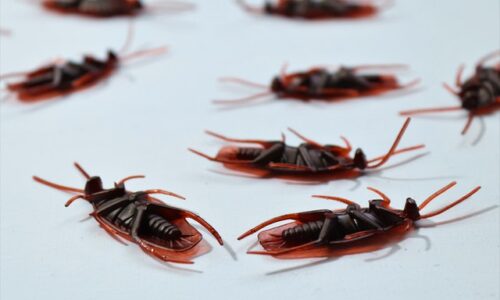
High blood pressure can also cause diseases that affect essential organs such as the brain and heart. There are ways to reduce the risk factors for high blood pressure, such as eliminating obesity, avoiding stress, quitting smoking, and eating habits, but it’s okay if you can. Let’s reduce even one and extend healthy life expectancy.
High blood pressure means high blood pressure. Since high blood pressure has few subjective symptoms such as pain, it tends to be left unattended even if it is pointed out in a medical examination. However, high blood pressure can also cause diseases that affect essential organs such as the brain and heart.
Therefore, this time, we will explain the causes and risk factors of high blood pressure, and also explain the adverse health effects that can occur due to the progression of high blood pressure and how to reduce the risk.
There are 2 types of hypertension: “essential hypertension,” for which the exact cause is unknown, and “secondary hypertension” caused by illness.
Essential hypertension
It is believed that genetic & environmental factors are involved in essential hypertension. Ecological factors that raise blood pressure include obesity, stress, smoking, and excessive salt intake, but genetic factors and multiple environmental factors often affect each other to increase blood pressure.
Effects of obesity
The number of blood circulating in the body increases in proportion to body weight. Therefore, as you gain weight, the pressure on your blood vessels also increases. In addition, obesity makes it easier for blood pressure to rise because substances in the body constrict blood vessels are more likely to be secreted.
Effects of stress
With stress, the sympathetic tone continues. When the sympathetic nerves become tense, blood vessels contract, making it easier for blood pressure to rise.
Effects of smoking
Smoking has the impact of constricting blood vessels and raising blood pressure. This effect is temporary, but heavy smoking can lead to long-lasting high blood pressure. In addition, smoking lowers the oxygen concentration in the blood, which puts a heavy burden on the heart.
Effects of excessive salt intake
If you take too much salt (sodium chloride), your body will get more sodium. It is said that when the amount of water in the blood increases to regulate the concentration of sodium, the amount of blood circulating in the body increases, and the blood pressure rises.
Effects of drugs
Secondary hypertension can be expected to improve by treating the underlying illness.
High blood pressure can also have adverse effects on the brain, heart, and kidneys.
High pressure is continuously applied to the blood vessels, which damages the blood vessels and promotes arteriosclerosis. Atherosclerosis causes life-threatening illnesses such as cerebrovascular disease, heart disease, and kidney disease. Vilitra 40 and Cenforce 150 treatment for ED. Therefore, lowering blood pressure also extends healthy life expectancy and saves lives.
The following is a summary of the relationship between hypertension and cerebrovascular disease, heart disease, and kidney disease.
Secondary hypertension
Causes of secondary hypertension include the following:
Diseases that reduce renal function (renal parenchymal hypertension, renovascular hypertension, etc.)
Diseases that cause an imbalance of hormones involved in blood pressure regulation (primary aldosteronism, Cushing’s syndrome, pheochromocytoma, etc.)
Hypertension and cerebrovascular disease
Most cerebral hemorrhage is attributed to high blood pressure. In addition, there are three types of cerebral infarction, “lacuna infarction,” “atherothrombotic cerebral infarction,” and “cardiogenic cerebral embolism,” all of which are near related to hypertension.
High blood pressure and heart disease
When blood pressure rises, the heart needs a lot of power to pump blood. If the condition continues for a long time, the heart muscle becomes thicker, resulting in “cardiac hypertrophy.
When arteriosclerosis occurs in the coronary arteries surrounding the heart and the blood vessels become thin or clogged with blood clots, it becomes ischemic heart disease. Blood is not sufficiently supplied to the core. High blood pressure also causes “heart failure.”
High blood pressure and kidney disease
When arteriosclerosis occurs in the blood vessels of the kidneys due to high blood pressure, the blood vessels become thinner, blood flow decreases, and kidney function declines. Then, the kidneys cannot excrete water as urine, and as a result, the number of blood increases, and the burden on the heart increases. Then, the blood pressure becomes higher, and the kidney function is adversely affected. Thus, hypertension and renal function are in a relationship of exacerbation of each other.
Treatment of high blood pressure starts with improving lifestyle.
High blood pressure is a disease that not only causes arteriosclerosis but also adversely affects the organs themselves. However, many risk factors for high blood pressure can be eliminated by improving lifestyle habits.
Elimination of obesity
For high blood pressure caused by obesity, it is useful to aim for weight loss by combining diet and exercise therapy. It is recommended that you do aerobic exercise, such as walking. However, if you lose weight suddenly, you may get sick, so do not lose weight unexpectedly. In addition, weight loss can be expected to improve not only blood pressure but also blood sugar level and serum lipid level.
Avoid stress
Get a good night’s sleep, and get plenty of rest to avoid stress. Relieving stress through hobbies and exercise is also an excellent way to do it. Exercise is especially recommended as Vilitra 60 and Fildena Super Active it can help intimate life.
Quit smoking
Quit smoking to reduce the strain on your blood vessels and heart. Smoking cessation aids increase the success rate of smoking cessation. It is useful to use commercially available nicotine gum, but one method is to use a non-smoking outpatient clinic. You can also quit smoking in a nicotine-free manner by visiting a smoking cessation clinic.
You can reduce your salt intake by taking the following measures.
Reduce the number of pickles
Reduce soup to about once a day
Leave the noodle soup.
Seasonings such as soy sauce and sauce should be “applied” instead of “sprinkled.”
Make fair use of spices such as pepper and capsicum and citrus juice to reduce the amount of soy sauce used.
Even if drug treatment begins, lifestyle-related improvements must continue. If your blood pressure drops due to lifestyle changes, you may reduce the amount of medicine, or you may not need to take it.
That doesn’t mean you have to overdo it. Review your lifestyle as much as you can without feeling stress, and try to reduce even one risk factor for high blood pressure.




